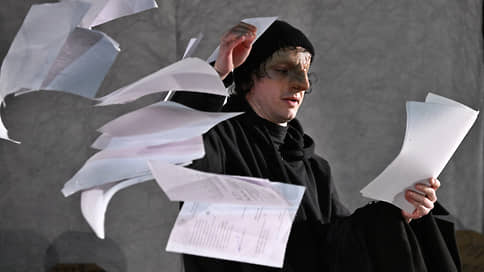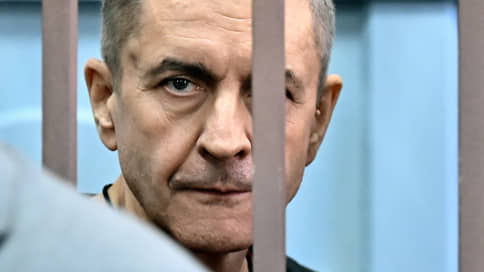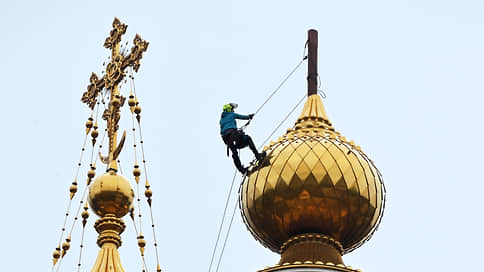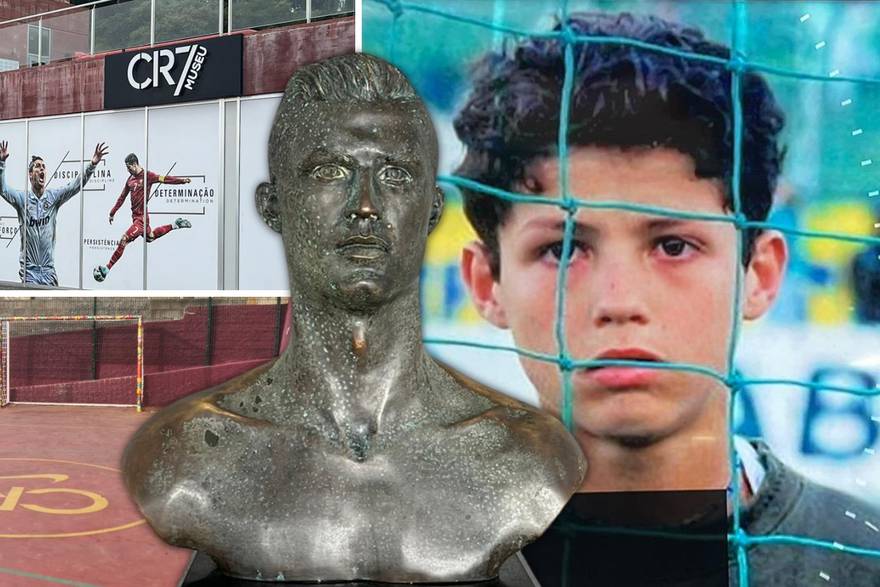Review of the play « Sirano de Bergerac » in the production of Konstantin Raikin

In Satyricon, the premiere of Sirano de Bergerak was released. The theater announced her as “Fantasy around the heroic comedy of Rostan, created by Konstantin Raikin and the young team of the theater.” According to Marina Shimadina, The performance turned out to be really youth and musketeral.
In the 90s in Satyricon, Sirano was already in the production of Leonida Trushkin, where Konstantin Raikin himself played a title role. And this is the only case when the actor decided to return to the director who was already traveled. And despite the saying about one river, his new Sirano turned out to be very lively, fresh and relevant.
Its action does not take place in the XVII century, as the plot suggests, and not in the XIX, when the drama of Rostan was written, and not even today. It unfolds not in life, but in the world of literature, in the fields of the great play. The main material of the scenography of Dmitry Razumov is paper. Mountains of letters and drafts dumped into a pile, painted with a small handwriting curtain; Even part of the characters here represent cardboard silhouettes, as if cut out of the manuscript. And the rest of the characters here realize that they are the heroes of the text.
Raikin in every possible way emphasizes this game in the theater, a game of literature: between the matter, the audience read out explanatory footnotes to the historical realities and surnames mentioned in the text, demonstrate on the screen a portrait of the hero’s prototype, the real poet and playwright Savinen de Sirano de Bergerac. And they even discuss the translations of the play, temporarily moving from the “male syllable of Solovyov” to the ornate Shchepkina-Kupernik. But still, as the main one, they use a more accurate, dry and compressed translation of Vladimir Solovyov, reducing it to two and a little hours that play without intermission. But this time flies almost imperceptibly, in one breath, since the production is saturated with action, elastic and energetic – to match its author or authors.
A separate attraction is a duel on swords, set by Victor and Oleg Mazurenko, not a sluggish arbitrary fencing, which you often see in the theater, but a real stage battle, almost a dance, as sophisticated as the poetic improvisation of the sirano, similar to rap battles.
According to the tradition, “Sirano de Bergerak” is put on a famous, honored artist, sometimes already at the age.
At the Satyricon, they made a bet not on a star, but on ensemble, some actors perform several roles, creating a sense of free game elements.
Even for the main role, there are two artists playing in turn – Yaroslav Medvedev and Daniil Pugaev. Both graduated from Raikin’s course in HSHSI and for almost ten years have been densely busy in the theater repertoire. At the same time, actors are very different in type and psychophysics. But the work of Yaroslav Medvedev, in any case, looks perfect in the image.
For Raikin, it is fundamentally that his sirano is a poet. In the directorial mudboard, the program provides portraits of Pushkin, Lermontov, Gumilyov, Mandelstam, Vysotsky – poets of the tragic fate who conflict with the authorities. But Medvedev is playing a not collective image of Piite, but a poet of the 21st century, 2025 – rapper and informal, in tall berets, a hat and a hoodie with a hood (as always the exact costumes of Maria Danilova). A little stooping or even humpbacked, on the half -bent springy legs, he is constantly ready to throw, to repel the attack. This is a sharp and dangerous person, like a razor, which goes in an inaudible way, a samurai, which caused a whole world to battle. And yet – at first it is a very young man, whose behavior is largely explained by youthful maximalism. But even in the finale, ten years later, he will not betray his principles, even in poverty defending the right to be himself. Raikin himself says that for him this is a story about the « beauty of defeat. »
The respectable society does not accept Sirano – such prickly, uncomfortable, and he does not want to write and say what is supposed to, “to devote poetry to the ministers”, does not listen to good advice from cautious friends. On the other hand, the hero also drives the complex of his own ugliness: getting used to it that “the whole world goes to him by war,” he cannot assume that Roxanne’s beauty is able to love him. Although the audience is obvious that “chemistry” immediately arises between them. Young Ekaterina Voronina (this is her second big role after Gretchen in the play “Like Faust Blind”) plays Roxanne a proud and confident luxurious socialite, which is passionate about her talented cousin, but cannot reveal to him from pride. Even the love of Christian, the rustic and good -natured 18th awesome (Ilya Genenfeld), she comes up with to cause jealousy to Cyrano, but instead kills his last hopes.
We must see with what despair and anger he breaks off a stupid pink jacket, which he dressed up for a meeting: they say, was not created for love, and you should not start.
This smart Roxanne is well aware who reads poetry to her under the balcony. And she comes to the combat position to the besieged Arras precisely to Sirano, soldered by his letters. Realizing this, Christian in a frenzy tears kilometers of love messages written by de Bergerac instead of him, fights in the whirlwind of these treacherous confessions – this is the best scene of his role. Nevertheless, a friend forgives and is ready to give him love, but a random (or not) bullet, who killed Christian, takes away from the survivors the possibility of happiness.
I must say that the version of the secret mutual feeling of Sirano and Roxanne was in the performance of Trushkin. But here this topic sounds especially acute, again because of the youth of the heroes. Against her background, the conflict of the artist and the authorities, and the bloody thirty -year war, where the fighters listen to Serge Gensbur, singing on the Russian waltz “Autumn Dream”, are fading into the background. But this hoarse voice of another “damned poet” in the ringing silence before shelling simply and piercingly expresses the general longing for love, about happiness, which “it was so possible,” but did not come true.








